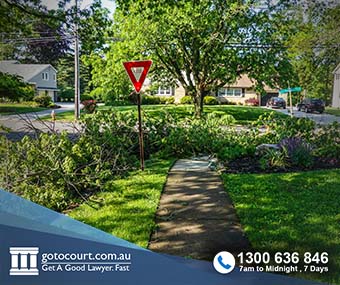Residential Tenancies (ACT)
In the ACT, residential tenancy disputes are governed by the Residential Tenancies Act 1997 (RTA). When a dispute arises about a residential tenancy, it is dealt with by the ACT Civil and Administrative Tribunal (ACAT). This page deals with the laws surrounding residential tenancies in the ACT.
Residential tenancies and prescribed terms
All leases in the ACT are taken to include the prescribed terms that are set out in Schedule 1the RTA.
The prescribed terms include:
- that the lessor may require a bond to be paid but the bond must not be more than four week of rent
- the lessor must provide two copies of a condition report to the tenant within one day of the tenant taking possession of the property
- at the end of the tenancy, an inspection must be carried out in the presence of the lessor and the tenant
- the tenant must pay the rent on time
- the lessor must not require the tenant to pay the rent more than two weeks in advance
- the lessor must keep records of rent payments
- the rent must not be increased at intervals of less than 12 months
- the tenant must take reasonable care of the premises and keep them reasonably clean
- the tenant must not make alterations to the property without the lessor’s consent
Terms that are inconsistent with the prescribed terms
If both parties agree to include a term that is inconsistent with the prescribed terms set out in the Act, they must seek approval from ACAT before doing so. This is done by way of an Application for Endorsement. If terms are not approved by ACAT, they cannot be relied on in the event of any later hearing before ACAT.
If ACAT approves terms, a copy of the proposed lease and the prescribed terms and the proposed additional clause must be lodged at ACAT together with the Application for Endorsement. The tenant and the landlord must agree to and sign the Application for Endorsement. These applications are usually decided on the papers included in the application. However, if more evidence is needed, the tribunal will make a written request.
Disputes about residential tenancies
A number of types of disagreement may arise under a residential tenancy agreement. In some cases, a tenancy dispute may result in a party lodging an Application for Resolution of a Dispute.
Disputes about residential tenancies may involve:
- unpaid rent
- damage to the property
- refund of bond
- orders for termination of a lease and
- application for rent reduction.
When an application to resolve a dispute is filed, the Registrar will decide whether to refer the matter for mediation or set it down for hearing before a Registrar or ACAT member.
If the matter is set down for a hearing, it will first be referred to a pre-hearing conference. A written notice advising the date, time and location of the conference and hearing and a full copy of the application will be sent to both parties. At the pre-hearing conference, the Registrar will try to assist the parties to resolve the dispute. They will also estimate how long the hearing will take.
If the parties are not able to resolve the dispute at the pre-hearing conference, the matter will proceed to hearing. Both sides will have the opportunity to adduce evidence and make submission and then the tribunal will make a decision, which will be binding on the parties.
Procedures at ACAT
A person may be represented at an ACAT hearing by a lawyer or an agent, or they may appear on their own behalf. If a party is unable to appear in person, then arrangements can be made for a teleconference.
Costs are usually not awarded in ACAT matters unless one party has caused an unreasonable delay in the proceedings.
At the hearing, the applicant and the respondent will be asked if they want to add anything further to what has been presented in their application or defence, and then the tribunal will usually hear the matter straight away. If the respondent does not appear, orders can be made in their absence. Within seven days of the hearing the parties will receive a written notice setting out any orders that have been made.
Orders that can be made
After ACAT has decided a residential tenancy matter, it may make a variety of orders. These include:
- an order terminating a tenancy agreement
- an order granting a termination of lease and possession order
- an order for the payment of rent arrears
- an order for a stay of eviction.
Failure to comply with an order
If a party does not comply with an order, both ACAT and the Magistrates Court can take enforcement action.
ACAT may impose a penalty of up to $5,000 for noncompliance with an order. If a termination and possession order is made and the tenant does not vacate the property by the date ordered, ACAT can direct the Registrar to issue a warrant for eviction of the tenant.
ACAT orders are also registered in the Magistrates Court, and can be enforced through that court.
Residential tenancy court matters
Some disputes about residential tenancies in the ACT will not fall within ACAT’s jurisdiction. ACAT cannot deal with matters involving an amount of more than $25,000. If a tenant or landlord wishes to claim an amount that is more than $25,000, they should apply to the ACT Magistrates Court, which has jurisdiction to hear civil claims of up to $250,000.
If you require legal advice or representation in any legal matter, please contact Go To Court Lawyers.








